PMS (Pre-menstrual Syndrome)
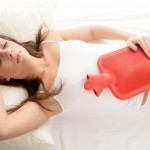
What are the symptoms of PMS?
This is where a lot of confusion has arisen because over 150 symptoms can be classed as PMS. These can include:
| Mood swings | Irritability |
| Anxiety and tension | Bloating |
| Breast tenderness and swelling | Water retention |
| Acne | Tiredness |
| Weight gain | Headaches/migraines |
| Crying Spells | Depression |
| Sugar and food cravings | Constipation |
| Dizziness |
Quite a list!
Personality changes associated with this time can be very severe with some women describing a Jekyll and Hyde change where they literally become a different person pre-menstrually. Women say that they know they are feeling and thinking differently to the point of being irrational but they have no control over those changes. For some women at that time the world seems completely negative, ‘everything seems black’, doom and gloom and they will often cry at the slightest thing without any real reason.
Types of PMS
In order to make classification of PMS easier, Dr Guy Abraham in America, devised a system of categories for the different types of PMS symptoms. These fall into four categories
Type A – Anxiety
This category which is very common in up to 80% of women each cycle, includes those symptoms such as mood swings, irritability, anxiety and tension.
Type C – Cravings
This group includes cravings for sweets or chocolates, increased appetite, fatigue and headaches. Up to 60% of women can experience these kinds of symptoms leading up to the period.
Type H – Hyperhydration
Type H includes symptoms such as water retention, breast tenderness and enlargement, abdominal bloating and weight gain. Up to 40% of women can experience these changes.
Type D – Depression
Depression is the largest symptom in this group but it can also include confusion, forgetfulness, clumsiness, withdrawal, lack of co-ordination, crying spells, confusion. Only 5% of women experience these symptoms but these can be the most serious if the woman is verging on the point of being suicidal.
Many women will get symptoms from each Type during any one cycle. And for some women these symptoms can change from month to month, so they are not always experiencing exactly the same symptoms before each period.
What are your choices?
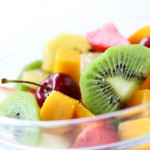
It is assumed that PMS has an effect on a woman’s general health by giving her any number of 150 different symptoms. But what if the situation is really the other way round. That is, if a woman’ health is not very good then this manifests as PMS in some women.
If you have not been eating well, maybe lacking in certain vitamins and minerals, not exercising, stressed, too much to do each day and generally feeling ‘run down’ it is very possible that your body’s ability to produce the right balance of hormones and to utilise those hormones properly each cycle is going to be compromised.
Supplements
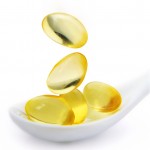
Multivitamin and Mineral
A good quality multivitamin and mineral would form the foundation of your supplement programme to make sure that you are getting a ‘little bit of everything’. You then add in those nutrients in slightly higher amounts which are known to be helpful for PMS.
Vitamin B6
A number of studies have shown the effectiveness of vitamin B6 on PMS. Vitamin B6 plays a vital part in synthesising certain brain chemicals (neurotransmitters) that control your mood and behaviour. In order for your body to convert B6 (as pyridoxine) into its active form (pyridoxal-5-phosphate) which your body can use, it needs other nutrients such as magnesium. So if you take B6 on its own but are deficient in other nutrients your body may not be able to use that B6 properly. It is also now possible to take vitamin B6 in the form of pyridoxal-5-phosphate which is the type I would recommend.
Vitamin E
This vitamin has been shown to be helpful for the breast symptoms associated with PMS and also the mood swings and irritability.
Magnesium
Magnesium is classed as ‘nature’s tranquilliser’ and so is vital in those aspects of the pre-menstrual symptoms which relate to anxiety, tension, etc.. Women with PMS have been found to have lower levels of red blood cell magnesium than women who don’t have symptoms and the supplementation of magnesium has been found to be extremely useful in alleviating many of the PMS symptoms and even more effective when taken with vitamin B6 at the same time.
A magnesium deficiency can cause blood vessels to go into spasms so if you suffer from menstrual migraines magnesium can be useful in preventing these spasms.
Chromium
Chromium is needed for the metabolism of sugar and without it insulin is less effective in controlling blood sugar levels. It helps insulin take glucose into the cells. In PMS, where many of the symptoms are similar to symptoms of blood sugar imbalance, it is crucial that you have enough of this nutrient. Without enough chromium, glucose levels get higher because insulin’s action is blocked. Insulin brings down the level of glucose.
This ability of chromium to help with cravings is especially important if one of your main pre-menstrual symptoms involves appetite changes. Some women can find that they can eat a packet of biscuits or a box of chocolates a day in the lead-up to their periods, while they would not think of eating like that at any other time of the month.
Omega 3 Fatty Acids
Signs of an Omega 3 fatty acid are dry skin, lifeless hair, cracked nails, fatigue, depression, dry eyes, lack of motivation, aching joints, difficulty in losing weight, forgetfulness, breast pain. If you have also tried to lose weight by going on a low-fat or no-fat diet, you are likely to be deficient in these essential fats. It is now estimated that we are getting ten times more Omega 6 fats from our diet than Omega 3 and over the last century there has been an 80% decrease in the consumption of these Omega 3 fatty acids. When you eat Omega 3 fats they are converted to substances that have an anti-inflammatory effect on the body.
Many of the women I see in the clinic have been taking evening primrose oil supplements – an Omega 6 fatty acid – for many years as it can be helpful with PMS. But you can end up with too much Omega 6 and not enough Omega 3 in your body. Some women are also taking combinations such as Omega 3, 6, and 9 in supplement form because they have heard that we need a good balance of all the Omega fatty acids. This is true, but you have to take into account what your own levels may be in the first place. It is no good adding in more Omega 6 if you have already got enough or in fact too much in your body. (You can now have a blood test to tell you if you have the correct levels of Omega 3 to Omega 6 in your body see below). To check whether you have sufficient levels of Omega 3 please click Omega 3 Deficiency Test (at home finger prick blood).
Furthermore, by adopting a healthier lifestyle you will be more likely to prevent PMS (Pre-menstrual Syndrome) which is discussed in detail in the rest of this ebook which you can read by clicking on Understanding PMS (Pre-menstrual Syndrome) ebook at The Natural Health Practice
Herbs

Agnus Castus (Vitex agnus castus)
This is the herb of choice for premenstrual symptoms (PMS). It has a balancing effect on the female hormones. A good double blind placebo controlled clinical trial in the British Medical Journal showed that agnus castus is an ‘effective and well tolerated treatment’ for PMS. Its effects have even been compared to an anti-depressant in the severe form of PMS termed premenstrual dysphoric disorder and there was no statistically significant difference between how well the drug worked versus the herb so when we have a natural solution that works equally well as a drug it seems logical to use the natural remedy.
Black Cohosh (Cimicifuga racemosa)
This herb is particularly helpful for the anxiety and tension symptoms of PMS and also headaches and migraines that occur premenstrually.
Skullcap (Scutellaria lateriflora)
While the agnus castus is working on hormone balance, the skullcap together with the black cohosh has a calming effect on your body.
Milk Thistle (Silymarin marianum)
It is your liver that has to detoxify your female hormones so you want it to be working efficiently.
Caution
You should not take any of the above herbs if you are taking, The Pill, Fertility drugs, HRT or any other hormonal treatment or other medication unless they are recommended by a registered, experienced practitioner.
Tests

Mineral Deficiency Test with Supplement Programme (hair)
Find out what the mineral and heavy toxic levels are in your body
This test measures the deficiencies and excess levels of 12 different minerals (including calcium, chromium, cobalt, copper, iron, magnesium, manganese, phosphorus, potassium, selenium, sodium and zinc) and 6 heavy toxic metals (including aluminium, arsenic, cadmium, lead, mercury and nickel) that may be present in your body. Find out more – Mineral Deficiency Test with Supplement Programme (hair)
Online Personalised Supplement Assessment Programme
Discover what vitamins and minerals you need and should be taking
The analysis of this comprehensive questionnaire will give you a three monthly supplement programme to help balance any vitamin and mineral deficiencies you may have. Find out more – Online Personalised Supplement Assessment Programme
Omega 3 Deficiency Test (at home finger prick blood)
If you want to find out if you are getting enough Omega 3 fatty acids from your diet and whether you have the correct balance of essential fatty acids.
Signs of an Omega 3 fatty acid are dry skin, lifeless hair, cracked nails, fatigue, depression, dry eyes, lack of motivation, aching joints, difficulty in losing weight, forgetfulness, breast pain. If you have also tried to lose weight by going on a low-fat or no-fat diet, you are likely to be deficient in these essential fats. It is now estimated that we are getting ten times more Omega 6 fats from our diet than Omega 3 and over the last century there has been an 80% decrease in the consumption of these Omega 3 fatty acids. When you eat Omega 3 fats they are converted to substances that have an anti-inflammatory effect on the body.
Many of the women I see in the clinic have been taking evening primrose oil supplements – an Omega 6 fatty acid – for many years as it can be helpful with PMS. But you can end up with too much Omega 6 and not enough Omega 3 in your body. Some women are also taking combinations such as Omega 3, 6, and 9 in supplement form because they have heard that we need a good balance of all the Omega fatty acids. This is true, but you have to take into account what your own levels may be in the first place. It is no good adding in more Omega 6 if you have already got enough or in fact too much in your body. (You can now have a blood test to tell you if you have the correct levels of Omega 3 to Omega 6 in your body see below). To check whether you have sufficient levels of Omega 3 please click Omega 3 Deficiency Test (at home finger prick blood).
After three months you would then have a re-test in order to monitor your progress and adjust your supplement programme according to your new condition.
If you need help in obtaining any of the supplements, herbs or tests mentioned above, click, PMS (Pre-menstrual Syndrome) options at The Natural Health Practice. They can supply all of them for you online or if you prefer to talk to somebody first you can also order by mail order on the telephone. The products supplied by this company are always of the highest quality.
Plan of Action
Nutrition
Ensure you are getting the right nutrition.Follow the dietary recommendations outlined in the free The Foundation of Health ebook For more information on the special dietary recommendations for PMS (pre-menstrual Syndrome), read the rest of the ebook on Understanding PMS (Pre-Menstrual Syndrome) ebook at The Natural Health Practice
Supplements
The supplement programme below should be taken for at least three months in order to achieve best results
Nutrients & amounts
| A good multi-vitamin & mineral supplement | Magnesium | 140mg | |
| Vitamin B6 (as pyridoxal-5-phosphate) | 25mg | Zinc | 15mg |
| Vitamin E (as d-alpha tocopherol) | 100ius | GLA | 150mg |
To avoid having to purchase numerous supplements for all of the above and to make the process easier, I have put together a supplement programme which contains all the nutrients and herbs mentioned above and in the correct dosages. For more information about these click PMS (Pre-Menstrual Syndrome) Supplement Programme.
In my book “Overcoming PMS The Natural Way” I explain the impact of nutrition on hormones and also given in great detail is a list of the most important supplements required in order to help you have a regular, symptom free menstrual cycle.
If you would like to order these special supplements now, you can do so through the Natural Health Practice by clicking PMS (Pre-Menstrual Syndrome) Supplements at the Natural Health Practice.
HerbsGood herbs should include: |
Herbs & amounts
|
||||||||
| At the end of three months you should reassess your condition and adjust your supplement programme accordingly. | |||||||||
Tests
The tests below have been specially selected to be the most helpful if you are concerned about PMS.
Mineral Deficiency Test with Supplement Programme (hair)
Online Personalised Supplement Assessment Programme
Omega 3 Deficiency Test (at home finger prick blood)
After three months you would then have a re-test in order to monitor your progress and adjust your supplement programme according to your new condition.
If you need help in obtaining any of the supplements, herbs or tests mentioned above, click, PMS (Pre-Menstrual Syndrome) options at The Natural Health Practice. They can supply all of them for you online or if you prefer to talk to somebody first you can also order by mail order on the telephone. The products supplied by this company are always of the highest quality.
Read More
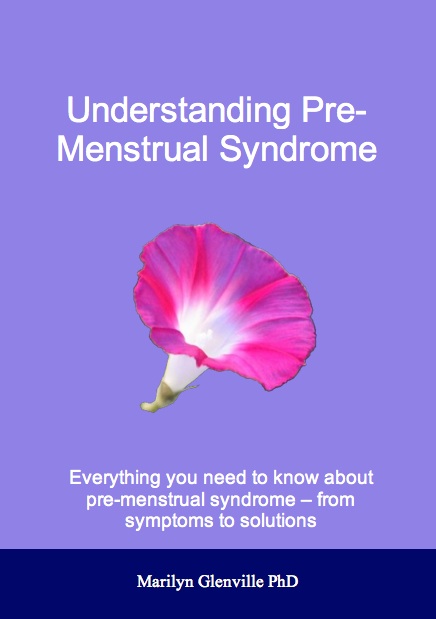
At the end of the ebook is a practical step by step summary of what you can do to help yourself.
If you would like to read the rest of this ebook click, Understanding PMS (Pre-Menstrual Syndrome) ebook at The Natural Health Practice and you will be given details of how you can download the whole ebook.
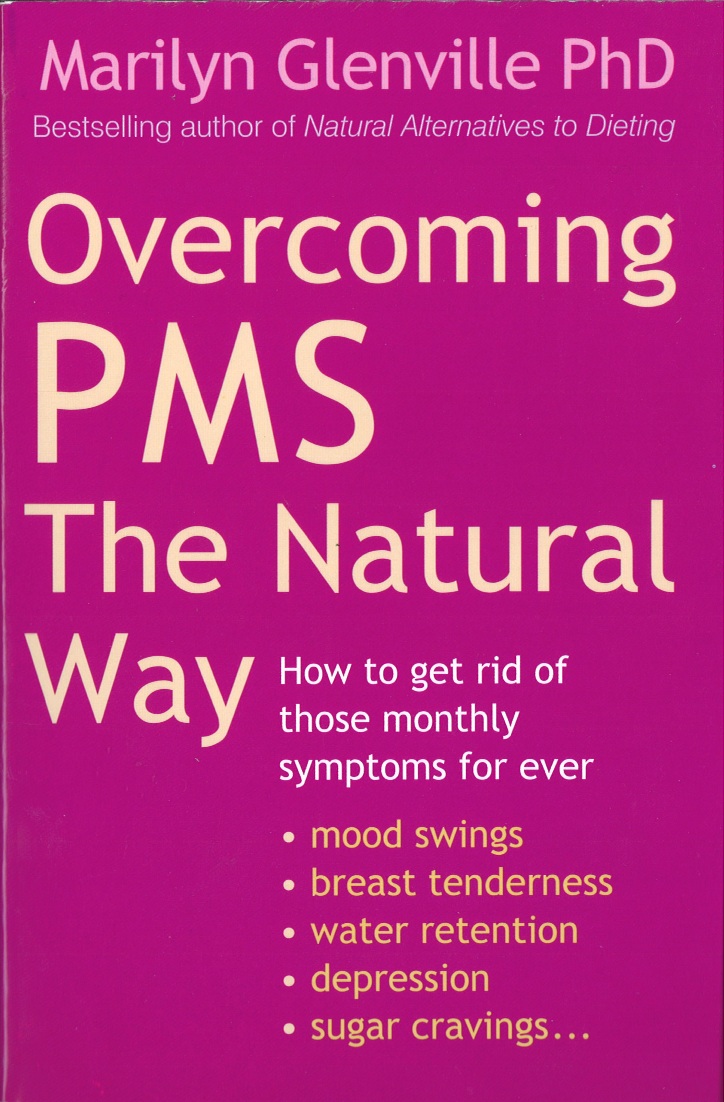
The contents of this site are for information only and are intended to assist readers in identifying symptoms and conditions they may be experiencing. This site is not intended to be a substitute for taking proper medical advice and should not be relied upon in this way. Always consult a qualified doctor or health practitioner, especially if you are pregnant, taking the pill or on any medication. Your situation will need to be looked at individually and you should not attempt to self treat. The author and publisher cannot accept responsibility for illness arising out of the failure to seek medical advice from a doctor.
The views expressed by third parties placing material on these pages are not representative of the views of the author or publisher. The Author and Publisher cannot monitor the content not produced by us and has not reviewed all the third party material published on this site and the Author and Publisher accept no liability whatsoever in relation to the content of third party material placed on these pages.

